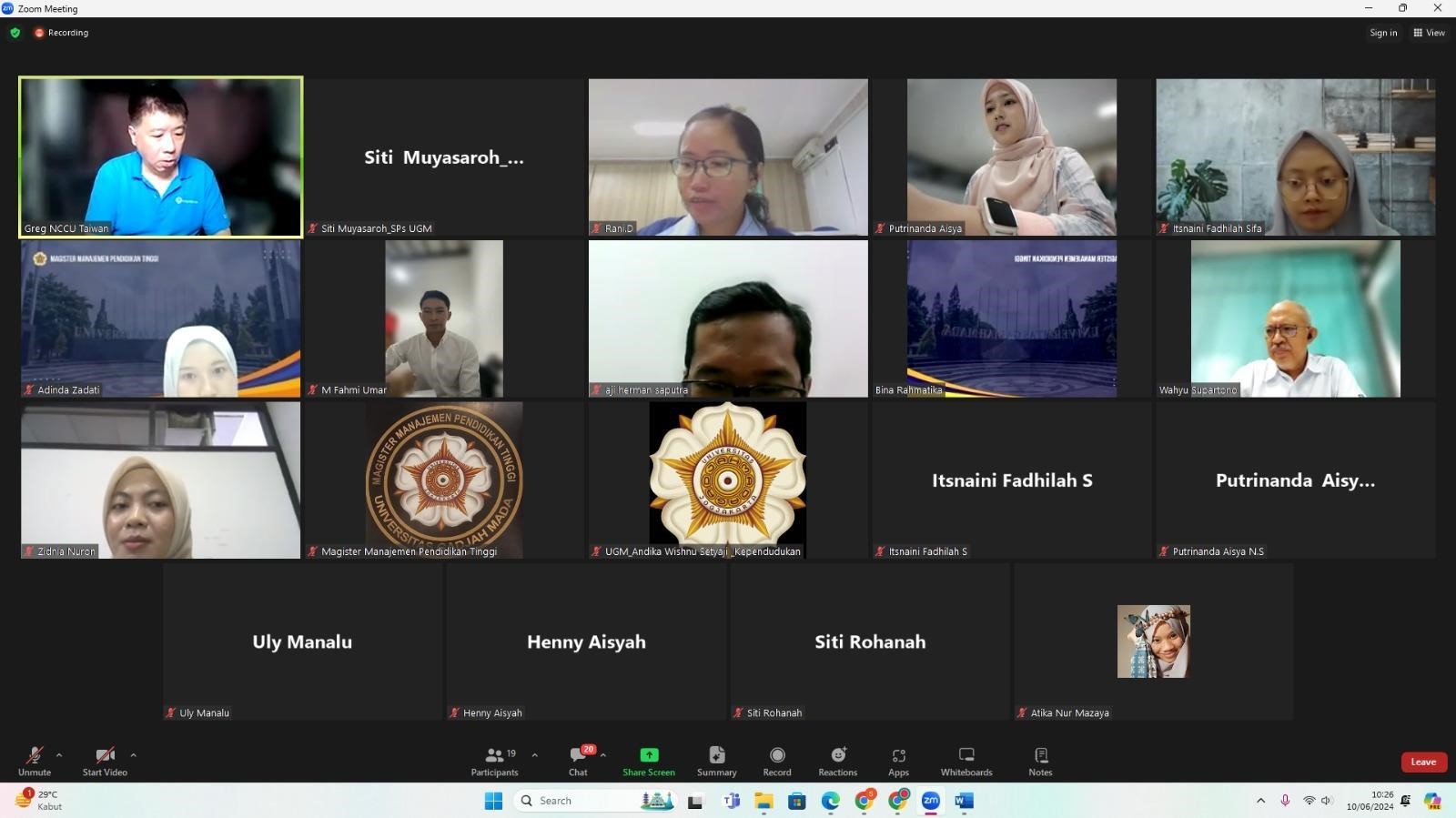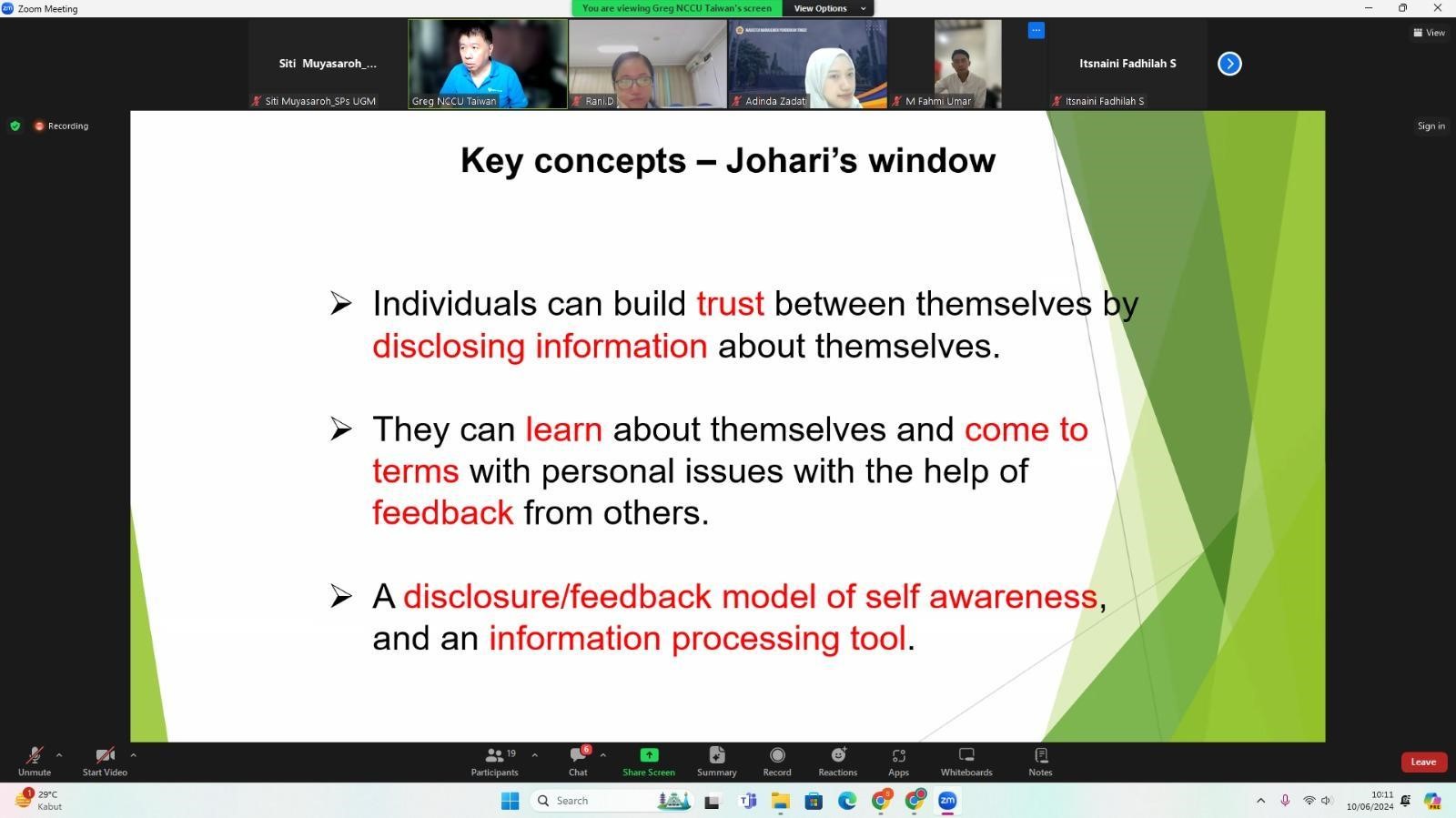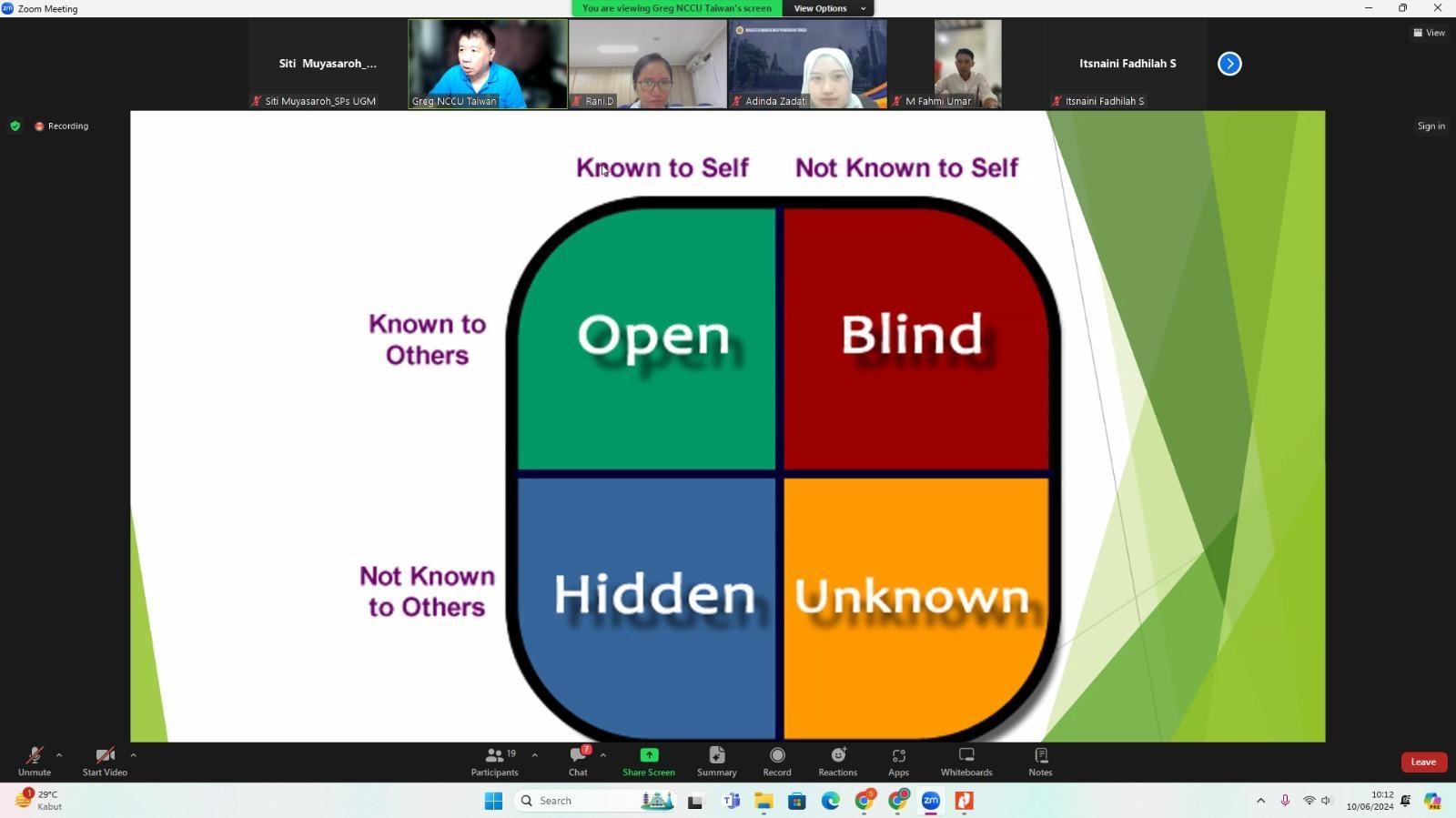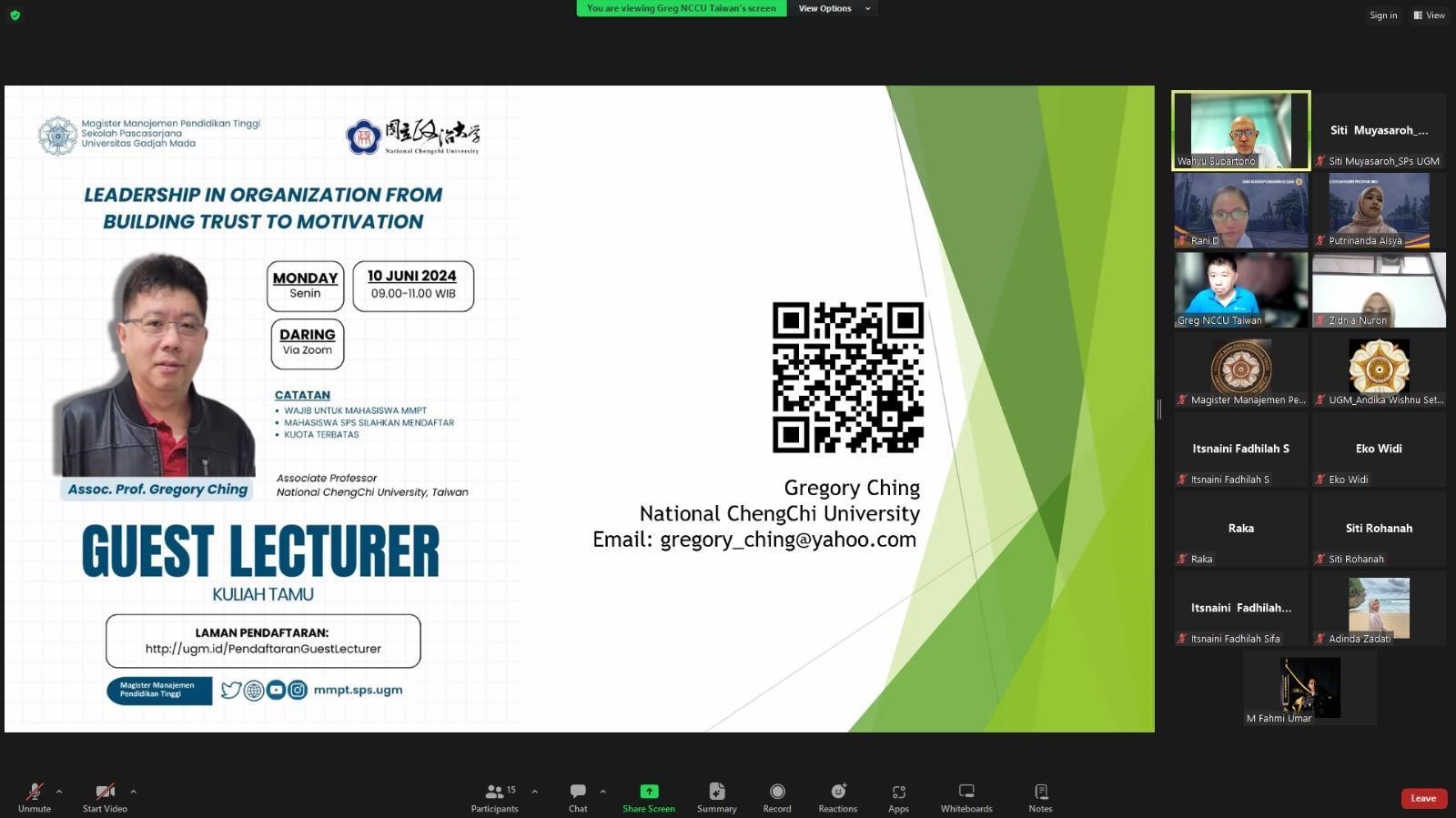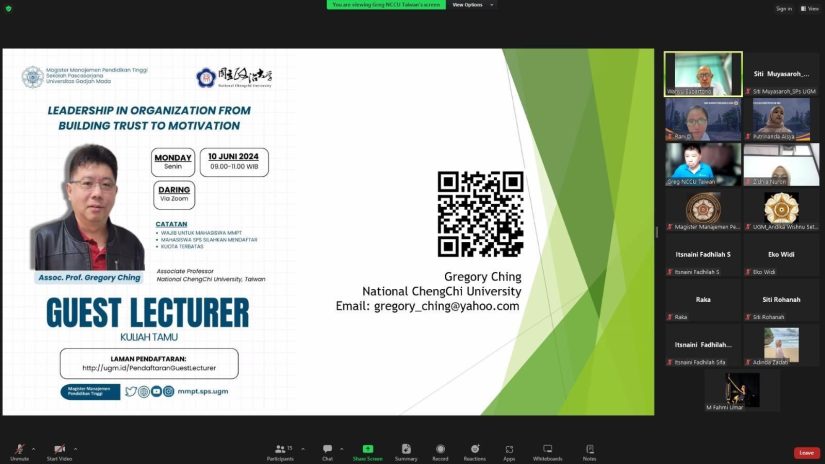
Prof. Gregory Ching, Associate Professor from National Cheng Chi University, Taiwan was again becoming a resource person as a guest lecturer in a lecture held by the Master of Higher Education Management Study Program (MMPT) Graduate School, Gadjah Mada University on June 10 2024. The lecture was held online using a zoom media meeting attended by MMPT students.
Carrying the theme “Leadership in Organizations: From Building Trust to Motivation”, this event contained sharing and discussions that were successful in improving and developing students’ critical thinking skills in responding to and conveying their views on leadership in organizations. There were 3 (three) important topics discussed in this event, including the general view and meaning of organizations, understanding of a leader in an organization, as well as theoretical concepts regarding organizational dynamics according to Johari’s Window and Tuckman Theory.
“An organization is an organized group of people who have the same goal and work together through a process of identifying and grouping the work that must be done. “The task of a leader or leaders in an organization is to empower, inspire, change and share their vision or views with members of the organization,” said Prof. Gregory when delivering his material.
The organizational structure consists of leaders, managers, and employees. A manager in an organization has responsibilities and things that must be done including: (1) Plan, (2) Direct employees, (3) Organize and implement, (4) Monitor goals, and (5) Evaluate goals, employees, and resources. The difference in responsibilities between leaders and managers can be seen in several aspects of leadership such as essence, focus, style and rules. The essence of leadership from a leader places more emphasis on changes that occur in the organization, while a manager is responsible for maintaining organizational stability. The differences between transformational and transactional leadership styles between a leader and manager in an organization integrate to achieve organizational goals.
Interactive discussions took place during the lecture with students conveying ideas regarding the character that a leader should have. Muhammad Fahmi Umar, MMPT student, expressed his idea that a leader must have the ability to lead including communication skills, problem solving skills, and organizational skills. Next, followed by Putrinanda Aisya who also conveyed her thoughts and arguments that a leader must have strategic thinking skills, decision making skills, and problem solving skills that support pro-active solutions. It is hoped that this activity will provide students with the opportunity to increase their thinking and behaving skills with good practices when they are in an organization in a certain position.
Tags : leadership, SDGs, SDG 4: quality education
Author: Siti Muyasaroh

